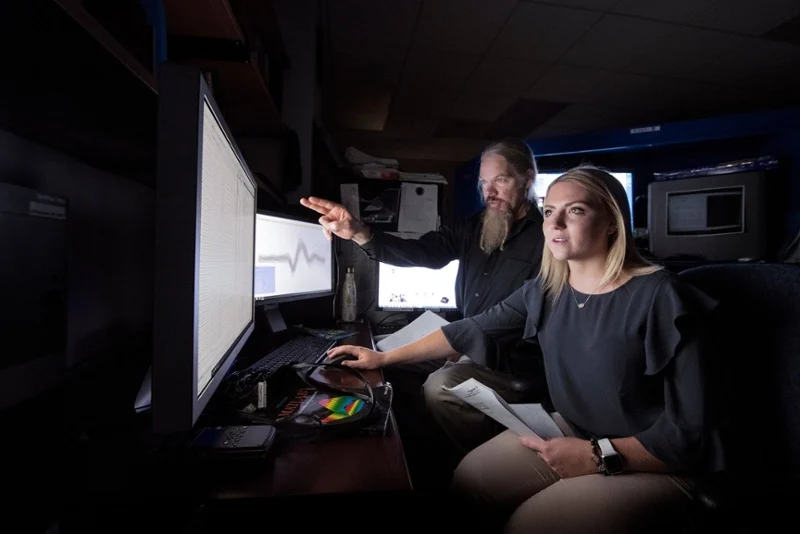Are you interested in becoming a graduate assistant during your time at graduate school? While this kind of opportunity isn’t for everyone, it does offer several benefits.
For one, graduate school is expensive, and a graduate assistantship can help offset high tuition costs. What’s more, this program can help fast-track your career—allowing you to grab the attention of your future employer and develop professional skills as you’re learning!
What does a graduate assistant do, how are they compensated, and how do you become one? Keep reading to find out everything you need to know about the job!
What Is a Graduate Assistant?
A graduate assistant is an employed student at a college student or university who provides support to a professor or department. In most cases, the graduate assistant is compensated via a modest salary (the national average being $36,776) or discounted tuition costs.
During your time as a graduate assistant, there are a wide range of roles and takes you may be required to take on—depending, of course, on the university’s graduate assistant program and your professor’s immediate needs. Duties may include helping with lectures, grading assignments, or performing independent research.
Particularly if you plan to teach in any capacity after earning your graduate degree, a stint as a graduate assistant is a natural stepping stone toward that line of work. Ultimately, this career move can give you a head start on your peers!
How to Become a Graduate Assistant

If you want to become a graduate assistant, follow these six simple steps:
Meet the Program’s Eligibility Requirements
The first step to becoming a graduate assistant is to determine if you meet your institution’s basic eligibility requirements. Typically, universities will require you to have earned your undergraduate degree, be enrolled in graduate school, and maintain a strong GPA.
Additionally, your school may require you to complete a minimum course load that is relative to your assistantship involvement. For example, a full-time graduate assistantship may require a 10-hour course load, while a half-time graduate assistantship may require a five-hour course load.
Network with Faculty Members in Your Department
Depending on the program, graduate assistantships can be competitive. With multiple students vying for only a few positions within your department, it’s important to identify areas that will give you an edge over other applicants.
Of course, strengthening your resume is one way to improve your chances, but taking opportunities to connect with faculty members will help as well. Finding a mentor, communicating with professors, and taking advantage of faculty office hours will help you make a positive and memorable impression!
Apply for Your Graduate Assistantship Program
While your university might very well need your assistance, your acceptance into the program isn’t guaranteed. In fact, all program candidates must go through a screening process.
Before submitting your application, gather several important pieces of information. In addition to information about your background, academic history, and employment history, most graduate assistantship applications require a letter of recommendation and several professional references from employers, mentors, or faculty members.
Sit for a Graduate Assistantship Interview
In most cases, your application will be followed by an interview with someone in your department. During this interview, you will likely be asked several questions ranging from personal and employment-related questions to past experiences and hypothetical scenarios.
Keep in mind that this may be your final opportunity to make a good impression on the department and have your application stand out from the rest. Prepare accordingly, adhere to any dress code requirements, and get plenty of rest the night before your interview.
Follow Up on Your Application

After sitting for your interview, you may be anxious to hear back regarding your application. Rather than sitting back and waiting for a response, be proactive! Call your department or send a brief email to follow up on your application.
Remember to be courteous and respectful. Following up will not hurt your chances of being accepted into the graduate assistantship program. If anything, it will only reinforce your interest in the program and keep your name top of mind!
Seek Guidance from Academic Advisors
Before embarking on the journey of securing a graduate assistantship, aspiring students should make a strategic pit stop with their academic advisors or graduate program coordinators. These seasoned professionals are like treasure troves of knowledge, holding the keys to unlock your potential for success.
Academic advisors are well-versed in the intricacies of graduate programs and the demands of different fields of study. They can provide invaluable insights into the types of assistantships available, the qualifications sought by hiring committees, and the application processes. Armed with this information, students can tailor their approach to suit the unique requirements of their chosen program, making their application stand out amidst the competition.
Prepare a Strong Statement of Purpose
Crafting an impeccable statement of purpose is the linchpin of your application. This document serves as your voice, allowing admissions committees to peer into your aspirations and motivations. A well-crafted statement should paint a vivid picture of your goals, elucidate why you’re pursuing a graduate assistantship, and illuminate how it dovetails seamlessly with your academic and career ambitions.
A strong statement of purpose is not a mere laundry list of achievements but a narrative that weaves together your past experiences, present interests, and future aspirations. It should resonate with authenticity and conviction. To illustrate, if you’re applying for a teaching assistantship, your statement should underscore your passion for education and your commitment to fostering learning among your peers.
Accept Your Graduate Assistantship Offer

If your application is accepted and you are selected for a graduate assistantship position, you will receive a formal job offer letter from your university. Your offer letter will most likely include a start date, end date, compensation, and any conditions that must be met by both parties.
Because your university may turn to other candidates if they don’t hear from you in a timely manner, be careful not to delay your response. Accept your offer and begin your graduate assistantship!
Plan for Potential Rejections
In the competitive landscape of graduate assistantship applications, rejection can be a bitter pill to swallow. It’s important to acknowledge that not all applicants will receive offers on their first attempt. The key is resilience and preparedness.
Encourage applicants to have a backup plan in place. This could involve seeking alternative funding sources, exploring part-time job opportunities, or considering a gap year to gain more experience and reapply in the future. Rejections are not a reflection of your worth but often a result of fierce competition or program-specific factors.
The path to securing a graduate assistantship is rife with challenges, but with the guidance of academic advisors, a compelling statement of purpose, and a resilient mindset, students can chart a course to success in their pursuit of assistantship opportunities. Remember, each rejection is merely a detour, not a dead end, on your journey to academic and professional growth.




